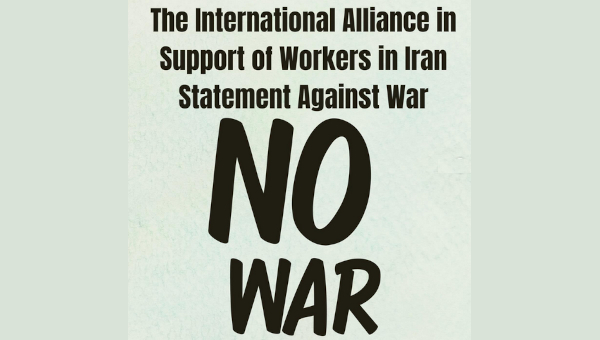
Whose cartography is to prevail?
This is from Weekly Worker (a publication of Communist Party of Great Britain), and seems to be a reasonable assessment of the situation in Libya; that, among other topics related to the current Arab revolutionary wave. The text is from "Moshé Machover's address at a recent CPGB aggregate on the defeat of the Libyan revolution, Al-Jazeera, and the goal of Arab unity."
The long road to the Arab revolution
by: Moshé Machover / March 31, 2011
It is very difficult to talk in a coherent way about a process which is unfolding and where things are changing all the time. What I would like to do is to initiate a discussion and explore some ideas about where the revolution is going, and what we should expect in both the short term and longer term.
But, given the contention on the left, I think we should start with Libya. There is a lot of confusion, and I think that this is partly for understandable reasons. I am not referring here to the ‘confusion’ of those who effectively cheer the imperialist intervention. Groups like the Alliance for Workers’ Liberty are in my opinion simply social-imperialists.
I am actually talking about socialists - people I regard as comrades, such as Gilbert Achcar, who is not a social-imperialist and is very critical of western intervention and of this ‘coalition of the willing’ (and partly unwilling!) that is being sent to ‘protect’ the Libyan revolution.
There is a genuine problem, and it would be unfortunate to appear callous and uncaring about the fate of those in Benghazi who were penned in and faced the terrible prospect of being massacred. Given the despair they are in, I would not actually be too critical of them for calling on the so-called ‘international community’ for help.
We have to be clear that the ‘international community’ is itself an ideological construct, a term used in order to conflate the US-led global hierarchy of states on the one hand and global public opinion on the other. There is world public opinion - civil society - which has real humanitarian concerns, and then there is the so-called ‘international community’, which is the nom de guerre of the US and its followers.
Why Libya?
Why did they go for Libya and not other places? For me there are three main reasons. Firstly, there is the question of oil. Do not underestimate this factor. Of course, the quantity of oil Libya offers is next to nothing in comparison to Saudi Arabia, but it is its quality which makes them interested in it. It is just about the best oil you can find, particularly for aircraft fuel.
Secondly, they have been asked to intervene this time around, which is crucial in providing them with an ideological and political cover: nobody asked them in Egypt or in Yemen; nobody even asked them in Bahrain.
Thirdly, although Gaddafi’s Libya ceased to be a ‘rogue state’ from around 2003, there is some truth in the claim that, from the standpoint of the imperialists, Gaddafi is still a rogue. Why? Well he is obviously a little bit crazy and very unreliable for them. So, although he is ‘our friend’ now (or was until very recently!), he was never somebody who could be fully trusted, as he is unstable in every possible manner - including mentally. How anybody can take him seriously after hearing him speak is simply beyond me.
[...]
It is my view that the Libyan revolution is already defeated. From the moment the Interim Transitional National Council felt it had to invite this intervention it became clear that it was unable to overthrow the regime. As Marx observed a long time ago, revolution is needed not only to overthrow the powers that be, but also to transform the people who are making it - the process of revolution is a transformative one which gives the masses confidence in their ability to change things and to be masters of their own fate. Once you call on other forces to intervene, all this is lost, and in this sense it is a defeat.
The second remark which I think I would add to Achcar’s analysis is this. It may well be that inviting these forces into Libya is the lesser evil, compared to being slaughtered. But it is still an evil. Sometimes one must accept and put up with the lesser evil, but one must never demand it. The people who are not only demanding, but cheering the intervention are renegades to the revolutionary idea. If it is a lesser evil but it comes to pass anyway, then you have to protest against it, you have to denounce it.
[...]
Moreover, the no-fly (now no-drive?) zone is dangerous not only in its immediate effect on the outcome in Libya. It also sets a worrying precedent. Once you give these forces the legitimation to act as the global policeman, then next time they will use it as they please - not for the lesser evil, but the greater one. Giving such forces legitimacy is in the worst interests of revolution both in the Arab world and beyond - it is in the best interests of counterrevolution, because that is how they are going to use it. It is not simply this situation on its own, in isolation, but what it implies for the future as well.
Also, when our rulers make war it is very bad for us - this is a point made by Marx.
[...]
Whilst I have claimed that this moment marks the defeat of the Libyan revolution, I have not said that it is the defeat of the Arab revolution. I certainly hope it is not! This is just one sector of it, but it is not accidental that this defeat happened in a country like Libya. The reasons are quite clear.
Read the complete analytical article here ...







No comments:
Post a Comment